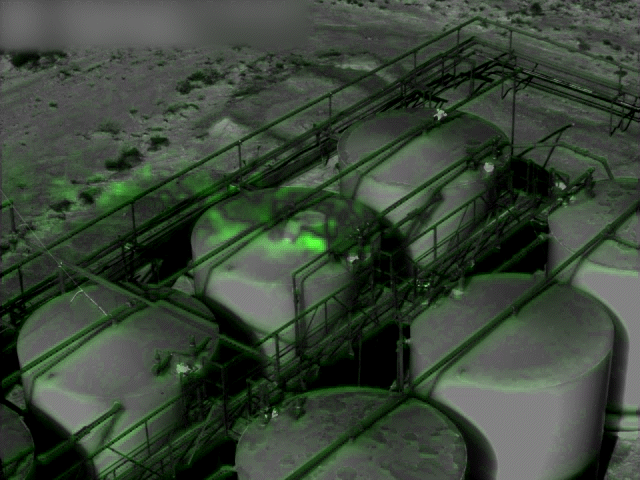Last modified on July 3rd, 2024 at 12:12 pm
When people think of global warming, they typically think of carbon dioxide (CO2) emissions. However, climate scientists are just as concerned about the effects of methane emissions since that methane has eighty times the warming power of CO2.
Fortunately, thanks to Sierra-Olympic Technology’s cutting-edge Ventus OGI (optical gas imaging) camera, it is now easier than ever to detect hydrocarbon gas leaks and identify point sources, providing clear, actionable information that crews need to make repairs.
The technology is so compelling that Ventus OGI recently caught the attention of the Viewpoint Project, an award-winning docu series hosted by none other than Dennis Quaid. While we’re not allowed to post the segment that is being aired on public television, we do have the rights to share the version below.
From the Global Methane Pledge
Methane is a powerful but short-lived climate pollutant that accounts for about half of the net rise in global average temperature since the pre-industrial era.
Rapidly reducing methane emissions from energy, agriculture, and waste can achieve near-term gains in our efforts in this decade for decisive action and is regarded as the single most effective strategy to keep the goal of limiting warming to 1.5˚C within reach while yielding co-benefits including improving public health and agricultural productivity.
Participants joining the Pledge agree to take voluntary actions to contribute to a collective effort to reduce global methane emissions by at least 30 percent from 2020 levels by 2030, which could eliminate over 0.2˚C warming by 2050. This is a global, not national, reduction target. Participants also commit to moving towards using the highest tier Intergovernmental Panel on Climate Change (IPCC) good practice inventory methodologies, as well as working to continuously improve the accuracy, transparency, consistency, comparability, and completeness of national greenhouse gas inventory reporting under the UNFCCC and Paris Agreement, and to provide greater transparency in key sectors.
The Pledge aims to catalyze global action and strengthen support for existing international methane emission reduction initiatives to advance technical and policy work that will serve to underpin participants’ domestic actions. The Pledge also recognizes the essential roles that the private sector, development banks, financial institutions and philanthropy play in supporting the implementation of the Pledge and welcomes their efforts and engagement.

